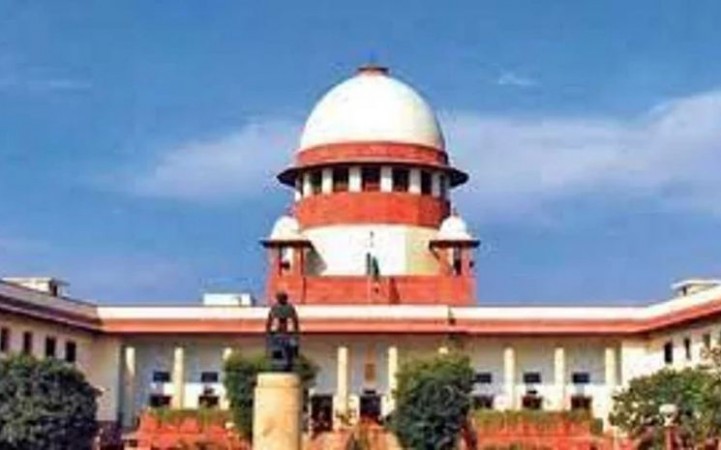
New Delhi: Central government today, May 9, informed the Supreme Court that live-in partners and same-sex couples cannot be allowed to avail of services under the surrogacy law.
The National Board's expert members were of the opinion that the definition of "couple" under the Act(s) is correct and that same-sex couples cannot be permitted to avail themselves of services under the said Act, said the Centre, which has informed the Supreme Court in a new affidavit in the matter filed on January 19.
The single parent needs a donor for oocytes and sperm from a third party, which may cause legal challenges and custody disputes in the future, according to the Centre's supplemental affidavit. Also, the live-in partners are not subject to legal obligations, and the safety of the surrogate child will be in doubt.
The Centre claimed in an additional affidavit that the Parliamentary Committee had considered the inclusion of same-sex and live-in relationships within the scope of the Assisted Reproductive Technology (ART) Act, 2021, and that it had come to the conclusion that while such relationships had been decriminalised by the Court, they had not been made legal. The Supreme Court was informed by the Centre that although same-sex and live-in relationships have been declared legal by the Court, no new rights or special arrangements have been made for these couples.
The Centre informed the top court that the Parliamentary Committee had also taken into consideration the inclusion of same-sex and live-in couples within the scope of the Surrogacy Act and was of the opinion that doing so would increase the potential for abuse of these services and make it more challenging to ensure a better future for the child born through surrogacy.
The Surrogacy Act of 2021 and the Assisted Reproductive Technology Act of 2021 were challenged, leading to the Center's reaction.
Arun Muthuvel submitted one of the petitions through advocate-on-record Mohini Priya. One of the petitions was submitted by 200 medical professionals who stated that they had objected to a number of restrictive and unscientific provisions of the ART Act, 2021. In particular, they expressed concern about the lack of provisions for financial compensation for oocyte donors in IVF and other unscientific restrictions, such as the limit on the number of donations one oocyte donor may make, which is not only unscientific but also a violation of the donor's right to donate, which is a part of her These petitioners are represented by attorney Mohini Priya, who previously argued that the Act completely excludes certain groups of people, such as single men, single women, same-sex couples, and live-in couples, and that there are constitutional issues the Court should take into consideration. The Court agreed.
In addition to this, the petitioners have also contested the clause bringing medical professionals under the IPC's jurisdiction and making certain offences cognizable, which is having a chilling effect on IVF practitioners across the nation by making them reluctant to carry out their professional obligations out of fear of being prosecuted.